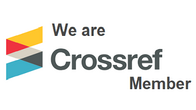The use of Think, Talk, and Write (TTW) model to foreign students learning Indonesian language at Overnewton College
Abstract
This research was conducted with the aim of knowing how students at Overnewton College learned Indonesian using the Think, Talk, and Write (TTW) learning model. This research was conducted online using Zoom as media. This research uses qualitative research with the descriptive-analytical method. The study used 11th grade students as the sample in this study. This study also examines how students' perspectives on learning are carried out and analyzes students' writing skills. Research finds that using the Think, Talk, and Write (TTW) model in learning the Indonesian language for foreign students can help students practice their speaking and writing skills in Indonesian. In conducting learning using the think, talk, write model, there are three primary stages students must go through to understand, that is, (1) think, (2) speaking, and (3) writing or expressing thoughts through written media. In general, students' perceptions on the learning are good. Besides, students also feel happy with the learning because it uses audio-visual media that can help students' listening skills
Keywords
Full Text:
PDFReferences
Ambarsari, H., & Syarif, H. (2017). THE EFFECT OF THINK TALK WRITE (TTW) STRATEGY AND STUDENTS’ READING HABIT TOWARD STUDENTS’ WRITING ABILITY.
Badan Pengembangan dan Pembinaan Bahasa. (2021). BAHASA INDONESIA BAGI PENUTUR ASING DALAM JARINGAN. Retrieved 21 September 2022, from https://bipa.kemdikbud.go.id/jaga
Badri, S. (2018). Metode Statistika untuk Penelitian Kuantitatif. Yogyakarta: Penerbit Ombak.
Bahri, S. (2018). IMPLEMENTATION OF THINK TALK WRITE (TTW) LEARNING MODEL TO INCREASE LEARNING RESULTS WRITE POETRY ON GRADE 5 ELEMENTARY SCHOOL. Retrieved from http://ojs.unpkediri.ac.id
Fuad Saifuddin, M. (n.d.). E-LEARNING DALAM PERSEPSI MAHASISWA.
Imran, F., Firman, E., & Raudhatunnisa, S. (2019). APPLYING THINK-TALK-WRITE (TTW) IN THE TEACHING OF READING COMPREHENSION IN RELATION TO STUDENTS’ CRITICAL THINKING SKILLS. Journal of Languages and Language Teaching (Vol. 7).
Jusniani, N., Setiawan, E., & Inayah, S. (2020). Secondary School Students’ Mathematical Communication Through Think-Talk-Write (Ttw) Learning Model and Interactive Media. In Journal of Physics: Conference Series (Vol. 1477). Institute of Physics Publishing. doi:10.1088/1742-6596/1477/4/042039
Kurniaman, O. (2018). Investigating Think Talk Write (TTW) Learning Model to Enhance Primary Students’ Writing Skill. Journal of Teaching and Learning in elementary Education (JTLEE) ISSN (Vol. 1).
Kusuma, A. P., Rahmawati, N. K., Putra, F. G., & Widyawati, S. (2020). The Implementation of Think Pair Share (TPS), Think Talk Write (TTW), and Problem Based Instruction (PBI) Learning Model on StudentS’ Mathematics Learning Outcomes. In Journal of Physics: Conference Series (Vol. 1467). Institute of Physics Publishing. doi:10.1088/1742-6596/1467/1/012065
Listiana, L., & Bahri, A. (2019). Empowering student’s creative thinking skill in biology classroom: Potential of group investigation combined with think talk write (gittw) strategy. Humanities and Social Sciences Reviews, 7(3), 477–483. doi:10.18510/hssr.2019.7370
Lukman, A. A. (2017). IRJES-2017-Vol.-1-Special-Issue-2-English-PROCEEDINGS (pp. 21–24).
Martini, S., & Nainggolan, E. (2019). Application of think talk write model (TTW) to improve communication ability of grade XII students on biology learning. In Journal of Physics: Conference Series (Vol. 1157). Institute of Physics Publishing. doi:10.1088/1742-6596/1157/2/022112
Mulyani, R., & Syahrul, R. (n.d.). PENGARUH MODEL PEMBELAJARAN KOOPERATIF TIPE THINK TALK WRITE (TTW) BERBANTUAN MEDIA AUDIOVISUAL TERHADAP KETERAMPILAN MENULIS TEKS PERSUASI SISWA KELAS VIII SMP NEGERI 8 PADANG.
Panji Handoko, M., Nur Fahmi, R., Kurniawan, F. Y., Artating, H., Sinaga, M. S., Pengembangan Strategi dan Diplomasi Kebahasaan, P., & Anyar, J. (2019). Potensi pengembangan bahasa Indonesia menjadi bahasa internasional, 1, 22–29. doi:10.26499/JBIPA.V1I1.1629
Pranatawijaya, V. H., Widiatry, W., Priskila, R., & Putra, P. B. A. A. (2019). Penerapan Skala Likert dan Skala Dikotomi Pada Kuesioner Online. Jurnal Sains Dan Informatika, 5(2), 128–137. doi:10.34128/jsi.v5i2.185
Rahmawati, N. K., Zaenuri, & Wardono. (2021). The experimentation of the TTW and the NHT learning models on polyhedron viewed from the problem solving ability. In Journal of Physics: Conference Series (Vol. 1918). IOP Publishing Ltd. doi:10.1088/1742-6596/1918/4/042115
Sari, L. P., Purwita, T. D., Wilujeng, I., & Suyono. (2020). Application of TTW (Think-Talk-Write) learning model using pictorial riddle worksheet to improve students’s conceptual understanding abilities. Journal of Physics: Conference Series, 1440(1), 012057. doi:10.1088/1742-6596/1440/1/012057
Setiawan, R., Made Sujana, I., & Apgrianto, K. (2018). THE EFFECT OF THINK-TALK-WRITE (TTW) TECHNIQUE ON STUDENTS’ WRITING ABILITY. English Language Teaching and Technology Journal (ELT-Tech Journal (Vol. 1).
Sugiyono. (2017). Metode Penelitian Pendidikan (Pendekatan Kuantitatif, Kualitatif, dan R&D). Bandung: Alfabeta.
Suminar, R. P., & Putri, G. (2015). THE EFFECTIVENESS OF TTW (THINK-TALK-WRITE) STRATEGY IN TEACHING WRITING DESCRIPTIVE TEXT. Journal of English Language and Learning, 2(2).
Supandi, S., Waluya, S. B., Rochmad, R., Suyitno, H., & Dewi, K. (2018). Think-talk-write model for improving students’ abilities in mathematical representation. International Journal of Instruction, 11(3), 77–90. doi:10.12973/iji.2018.1136a
Yadnya, N. W. A. W., Ardana, I. M., & Suharta, I. G. P. (2020). Development of Mathematics Learning Device Based on Cooperative Model Type of Think Talk Write that Supported by Edmodo for Developing the Mathematics Problem Solving Skills. In Journal of Physics: Conference Series (Vol. 1503). Institute of Physics Publishing. doi:10.1088/1742-6596/1503/1/012012
DOI: https://doi.org/10.26499/jbipa.v4i1.5351
Refbacks
- There are currently no refbacks.
Publisher:
Badan Pengembangan dan Pembinaan Bahasa, Kementerian Pendidikan dan Kebudayaan Republik Indonesia
Address: Jl. Daksinapati Barat 4 No.11, RT.11/RW.14, Rawamangun, Kec. Pulo Gadung, Kota Jakarta Timur, Daerah Khusus Ibukota Jakarta 13220 Phone: +62 (021) 4896558

Jurnal Bahasa Indonesia bagi Penutur Asing (JBIPA) is licensed under a Creative Commons Attribution-NonCommercial 4.0 International License.
View My Stats -->





